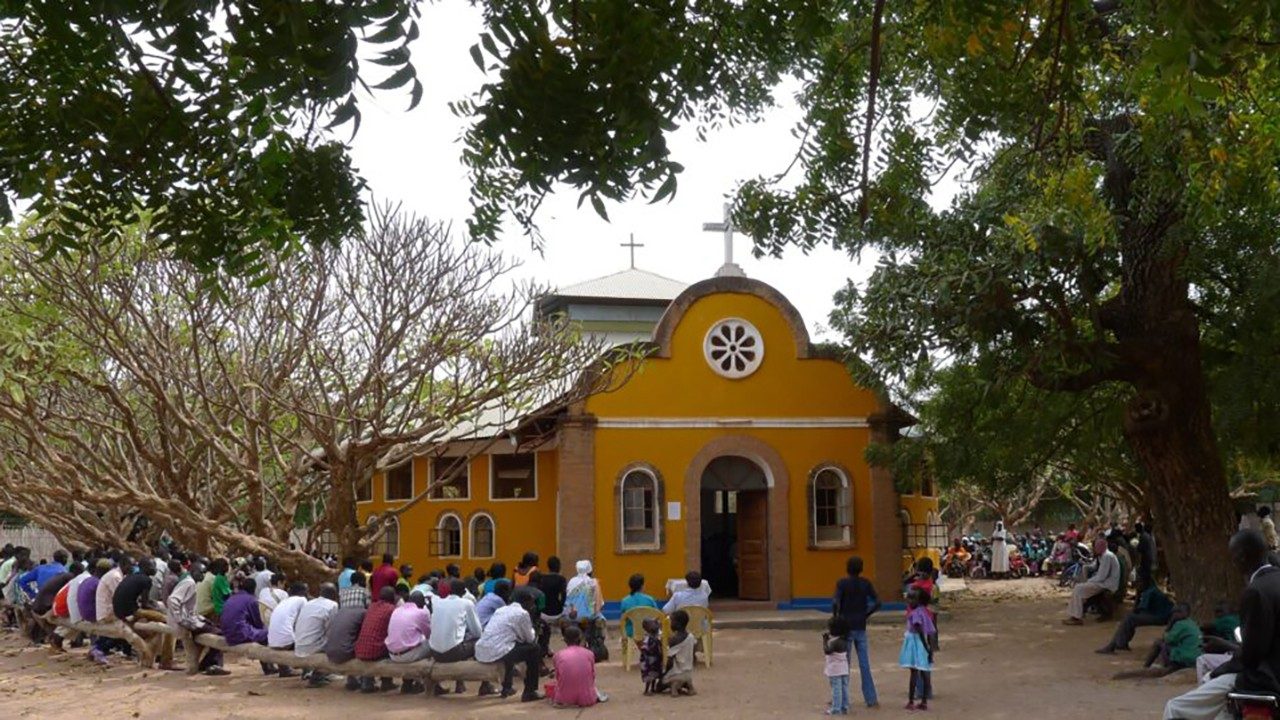Joaquim Magalhães de Castro
Cardinal Luis Antonio Gokim Tagle reminded the National Directors of the Pontifical Mission Societies (PMS), gathered in Rome for their annual General Assembly, that the experience witnessed by the first disciples of Jesus during the early Church continues to be the point of reference for all authentic missionary work and initiative.
The meeting between Cardinal Tagle and the National Directors of the PMS took place late in the afternoon of Wednesday, May 21, at the International Center of San Lorenzo in Brindisi, Italy. In his address – as recalled by Gianni Valente, reporter for the Fides news agency – the Filipino prelate began by “defining the task and responsibilities entrusted to his interlocutors in the audience.” He recalled that the National Director of the PMS can be seen as “the sign, symbol and instrument of the missionary identity of the Church, according to the teachings of the Second Vatican Council”. This is why the Mission Director is called to be “the face, voice, hands, feet and heart of a Church that does mission and the mission that the Church does in its local Church”.
Since their origin – Cardinal Tagle recalled – the Pontifical Mission Societies “have been expressions of the fidelity of the Catholic faithful to Christ, transformed into missionary co-responsibility, that is, into missionary discipleship”. However, apostolic zeal is never a self-generated impulse nor the result of the mechanical application of a “missionary method”. In the accounts of the early days of missionary work that the priests of old have left us, the inherent nature and genetic traits of missionary work are already revealed: the universal evangelical message of liberation, care for the poor and concern for cooperation and sharing of goods, gifts, charisms and ministries. Cardinal Tagle illustrated these aspects through suggestive examples. He recalled, for example, the following episode from the time of Christ: in view of the disputes that arose in the Holy Land over the requirement of circumcision for non-Jews who converted to Christianity, Paul and Barnabas went to Jerusalem and “called an assembly with the apostles and the elders”. This thus became the first Council, the Council of Jerusalem. This “conversation imbued with the Holy Spirit” involved the apostles and the elders, from whom they heard the Word of God and witnessed their actions. An ‘organization’ of universal reach, but of a profoundly spiritual nature, was already taking shape. From these first steps of the nascent Church, the importance of prayer, listening to the Word of God, discernment and mutual respect stand out as distinctive features that characterize every form of organized universal missionary cooperation. This – Cardinal Tagle concludes – is “the ‘soul’ of the ‘organization’”.
The Apostle Paul – Cardinal Tagle would recall with regard to the first Christian communities – also initiated a fundraising campaign among the new Gentile Churches of Macedonia and Achaia to support the poor Church of Jerusalem. The so-called ‘Apostle to the Gentiles’ even praised the Churches of Macedonia for sharing what they could, despite their poverty, testifying to the “circulation of love” between the young and older Churches, a ‘philosophy’ inherent in the activities of the PMS. “Whoever sows sparingly”, as the Second Letter of Saint Paul to the Corinthians states, “will also reap sparingly, and whoever sows bountifully will also reap bountifully… for God loves a cheerful giver”.
Common prayer, sharing of the Eucharist and also of material goods accompanied the life of the early Christian communities. The members of this brotherhood sold their possessions and laid the money at the feet of the apostles, who distributed it according to each person’s needs. In this regard, Cardinal Tagle recalled the story of Ananias and Sapphira, narrated in the Acts of the Apostles. These Christian pioneers sold a piece of land but kept part of the money for themselves. Peter rebuked them, saying: “They did not lie to men, but to God.” After this, Ananias and Sapphira died. Among the early believers, the Filipino prelate observed, such events occurred “even immediately after the Resurrection and Pentecost.” However, the essential features that accompanied and characterized the first apostolic work were those of prayer, mutual respect, listening and sharing. All these are elements that today characterize and make recognizable all authentic missionary cooperation. Bishop António Tagle reiterated that the Pontifical Mission Societies are also nourished by “that first Easter experience”. The work of the National Directors of the PMS can also be seen and experienced as an extension of the work of the first Apostles. “We too”, concluded the religious man, “can encourage the mission and our organization by learning from those who encountered the Risen Lord and were sent by Him in the power of the Holy Spirit.”


 Follow
Follow


